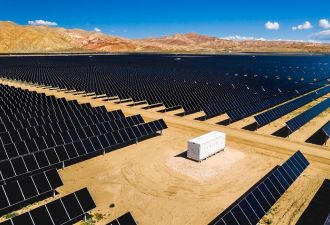The results from The Solar Foundation and the Solar Energy Industries Association’s second U.S. Solar Industry Diversity Study, released this spring, are clear: We’ve all got a lot more work to do.
Eighty-eight percent of senior executives in the solar industry are white and 80 percent are men.
Demographic studies are important because they speak to deeper underlying inequities within the solar industry and society as a whole.
The Solar Foundation study found women represented only 26 percent of the solar industry workforce and that men are more likely to earn higher wages than women in all positions — 26 percent more than women on average.
Rightly, the Solar Foundation also focuses on the unique experiences of women of color in the industry. Forty-two percent of black women reported feeling they had to “provide more evidence of their competence than their peers in other genders or races” (compared to 29 percent of white women and 16 percent of men).
Conscious and unconscious biases harm people of color, and especially women of color, in our industry and make it difficult for talented people to get their foot in the door and to advance to senior ranks.
Sponsorship and mentorship initiatives can be powerful tools in advancing the careers of women and people of color, but it’s worth pointing out that with a majority of senior leadership positions in the solar industry filled by white men, informal mentoring can perpetuate already insular professional networks. In fact, 59% of black women reported in the solar diversity study that they had never had an informal interaction with a senior leader at their company.
And more than a year after shocking harassment allegations out of California, it still only takes a quick Google search to find recent accusations of racial discrimination at a solar company.
Panels at industry events, webinars, and diversity and inclusion initiatives like The Solar Foundation and SEIA’s diversity best practices guide show how the industry is beginning to address issues around gender and racial diversity. Even with all this attention, only 36 percent of solar companies reported tracking metrics on employee diversity, and an even smaller number have strategies in place to improve workforce diversity.
You can’t change what you can’t see. Diversity alone will not create a more just society, but it is one of the ways organizations and companies can quantify our equity, inclusion, and diversity efforts and establish accountability.
If we want to have a truly honest conversation about where our starting line is and foster deep equity in our companies, we need real data. Tracking employee demographics is key to making progress.
It’s not just a solar industry issue. Leaders like Green 2.0 are shining a light on the lack of diversity, especially in leadership positions, in some of the largest and most influential green groups in an effort to build a more just and inclusive environmental movement.
They’re right. If we’re going to tackle the climate crisis and realize the promise of solar, the leadership of frontline communities most impacted by climate change and historic fossil fuel pollution should be at the center of the solutions. And that includes at the center of clean energy companies.
Four years ago, GRID started its equity, inclusion, and diversity initiative, including tracking employee demographic information. Simply taking stock of who was working at our organization, and who held leadership positions, helped us to better understand our starting line and hold ourselves accountable.
Over the last few years, we started sharing this information, along with the results of a now-annual staff satisfaction survey, internally across GRID’s staff. Inspired by Green 2.0, we are now committing to share it publicly on our website.
These numbers do not represent the totality of GRID’s equity work but are a touchstone in accountability to help the organization assess where we’re going. This year, we’ve added questions about sexual orientation and gender identity to our demographic surveys and are looking at more intersectional ways we can evaluate diversity within GRID.
Working toward justice and equity in our organization, our industry, and society is lifelong work, and we’ve still got a lot of work to do.
Solar helps families keep more money in their pockets, it helps communities be more resilient in the face of climate-induced disasters, and it creates jobs that have low barriers to entry. Solar really is for everyone. To make the promise of solar for all a reality, we’ve got to start with real data and an honest conversation.
****
Erica Mackie (she/her) is the co-founder and CEO of GRID Alternatives, a national leader in making renewable energy technology and job training accessible to low-income communities and communities of color.




